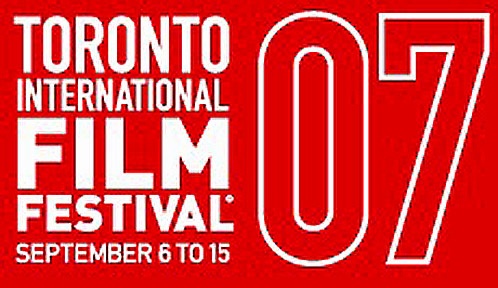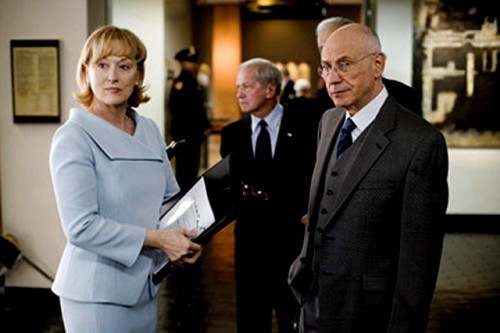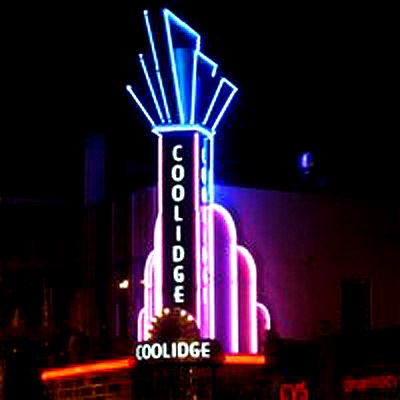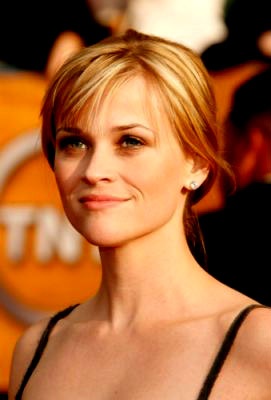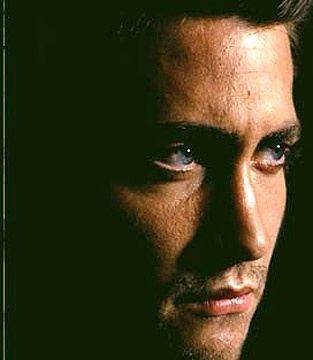The 2007 Toronto International Film Festival
Taking in the Olympics of Cinema
By: Mark Favermann - Sep 12, 2007
I love seeing a film in a movie theater. Sometimes, I even like to watch a film on television at home, but what I actually love the most is being in a large, darkened auditorium in a special theater, sharing time and space with hundreds of others, being visually and audibly transformed and intellectually transfixed for about two hours.
Each year, as summer ends, I look forward to a cinematic adventure and cultural refreshment with a weekend trip to Toronto one of the most appealing cities in North America. For 32 years, Toronto has hosted a global movie mega-event that builds on past achievements and, unlike many similar events, continues to meet its enormous potential.
The Toronto International Film Festival (TIFF) now the biggest and arguably most prestigious, publicly attended film festival in the world, is held each September in Toronto. The festival begins the Thursday night after Labor Day (the first Monday in September, in Canada and the US) and lasts for ten days. Between 300-400 films from 55 countries are screened at approximately 23 screens in downtown Toronto venues. This is more than any other festival in the world.
Although TIFF recently has begun to give more attention to mainstream Hollywood films, it maintains independent roots. It features retrospectives of national cinemas and individual directors, highlights of Canadian cinema, and a variety of African, South American, and Asian films.
The Toronto Film Festival (TIFF) was originally known as "The Festival of Festivals" and was founded in 1976 at the Windsor Arms Hotel, a quaint old boutique hotel that I used to stay at in the 1970s and 80s that has been replaced by an elegant new structure. It started as a showcase of the best films from other festivals around the world. It has subsequently grown to become a major Hollywood and global marketing machine.
Many great films have had their premiere at the Toronto International Film Festival, including Chariots of Fire, The Big Chill, Husbands and Wives, Thirty-Two Short Films About Glenn Gould, Downfall, American Beauty, Sideways, and Crash to name just a few.
There is a growing criticism with TIFF, as with the Sundance Film Festival, that Hollywood is having too much influence over the selection process. In recent years, both film festivals have been said to be way too big, slick, commercial, and even (God forbid) too mainstream. However, I say, let them eat cake, or, in this case, popcorn. The mix of mainstream with the Indies makes TIFF a moviegoer's Nirvana. There is something there for everyone from entertainment to documentaries or small independent films and large studio pictures. To paraphrase a famous movie line: if you make it, they will watch it. And they probably will.
And the film industry professionals -from scriptwriters to financial folks, directors to distributors, producers to film schedulers- all seem to attend. This year there were so many stars and directors that you needed to wear sunglasses as protection from the brightness and glare. Toronto was aflutter in designer frocks and Armani suits. The rest of us wore everything from t-shirts to shirtwaists, jeans, shorts and baseball caps to ball gowns.
Stargazing seems to be a ritual in Toronto. Red carpets are unrolled at premieres of films for the actors, producers and directors. The crowds cheer and clap. A few ask for autographs. The world entertainment press and the paparazzi snap away. Television reporters conduct interviews. Later in the evening, trying to get a glimpse, even if a fleeting one, of a Brad, Angelina or George, crowds throb and pulse in the ultrachic Yorkville neighborhood, home to the elegant big and smaller boutique hotels like the Four Seasons and The Hazelton Hotel or clubs like Amber. Yorkville is fun, but difficult to get served after 11 PM during the Festival. Celebrity gawking is a taste that I haven't developed. Somehow, I don't particularly like olives, either.
As for the actual movies, personally, I like to be entertained. So, I try to find both big and small films that tell a story. Others like to suffer from existential presentations either in the form of experimental films or serious documentaries. Still others focus on particular thematic movies. I know a forensic psychiatrist who attends every year only to see the films pertaining to the very darkest side of the human condition. Of course others are interested in only European films or South American films; while some viewers seek out new films by particular directors. TIFF is a festival for all tastes on a variety of sophistication levels. This is what makes the event so wonderful.
During my TIFF weekend (the festival actually runs 10 days), I visit Toronto to view six films. For the past two years, I saw one film late Friday evening, four on Saturday and one on Sunday.
Saturday starts vigorously and ends sleepily. By the fifteenth hour of the day, synapses are not necessarily firing as quickly while fatigue takes over. Remembering cinematic details may be a function of the degree of short-term memory loss incurred by too much visual and aural stimulation or, lack thereof by the films or, in my case, a less than stellar companion. About half way through a film, she experienced concentration lapses and asked me to explain plot twists. Luckily, you are not supposed to talk at a movie or I would have been overheard cursing loudly. She was also rudely anti-American as were a number of self-righteous Canadians that I encountered this trip. The Bush Regime has made it hard on us while abroad.
There are long lines before the shows. Everyone queues up. They form at the red satin rope and flow around large city blocks. This leads to often interesting discussions between locals and foreigners, amateurs, and industry types. Everyone is quite serious about the festival participation and often return over many years. Even a few film big-shots like producers, financiers and industry members sometimes can be found waiting on line. Those with industry passes (exhibitors, distributors, etc.) have other venues rather than the primary ones and a rigorous schedule to see as many films as possible in the shortest amount of time. The lines are often extremely long for each film, but audiences are efficiently managed by a wonderfully polite volunteers.
I attended TIFF with a group of about 20 board members from the Coolidge Corner Theatre, the venerable and quite wonderful independent, non-profit, 1933 Art Deco film center. These are people who really love going to movies. We rarely meet up at our downtown hotel except sometimes in the early morning to share breakfast and cinematic criticism or in passing along the streets of Toronto. We seem to go our own way. During the rest of the year, however, there is a nodding respect when mingling in the lobby of the Coolidge.
As for the films, there are always several that have "buzz." A couple that I tried to see were just not available. There is a complicated lottery system that distributes requested tickets. Last year, I saw five out of six of my choices; this year I manged four of six. The important industry types see all of their choices.
There was a new Coen Brothers film, a growing up film called Juno and a new film about Jesse James that I didn't get to see. A new Woody Allen film was being screened after I left. You can't always get what you want.
I did see a provocative, almost quietm smaller independent film, The Visitor. It starred the father from HBO's Six Feet Under, Richard Jenkins, a first time leading man at 60 who played a depressed, widowed professor at Connecticut College who is swept up in the lives of non-legal squatters. They awakened him to life in more ways than one can expect. At times amusing and poignant, The Visitor, focuses on individuals who move to the beat of a different drum. That was on Friday night. As with all the films that premiere, all the major actors were at the screening along with the director/writer for questions and answers.
On early Saturday, perhaps the best film of the festival was presented, Rendition. It starred Reese Witherspoon, Jake Gyllenhaal, Alan Arkin and Meryl Streep plus some Middle Eastern actors who were truly superb. Again, a questionable American foreign policy was a focal point of the film. The acting was outstanding, and its story was riveting. This one has Oscar nominations written all over it.
A tough ticket to get was, Michael Clayton, the George Clooney film. For some reason, women of all ages seem to like him. Perhaps, it's his good looks, thick hair and voice? Any film that he is in does well. This lawyer/fixer role in Michael Clayton is complicated and perfectly suited for him. The movie is about corrupt corporations and high priced lawyers running amuck. It is not a great film, but certainly worth seeing. As the senior partner, Sydney Pollack, the movie director who also occasionally acts, may get prize nominations. Tilda Swinton plays the corporation's general counsel with no moral compass as a mean as a snake lady lawyer interested in gaining the upper hand at any cost. She may get some prize nods as well.
Israeli films are often very good or very bad with no in-between. Secrets, the one that I saw at TIFF had some excellent acting, but I didn't like the storyline or the characters. Directed and written by a major Israeli filmmaker Avi Nesher, it focused upon a young ultra-Orthodox woman and struggles with her family, place in the world and sexuality. Set mostly in the ultra religious Israeli city of Safed in an woman's seminary, it tried to wrestle with women as secondary religious citizens in a 21st Century context following Biblical prescriptions for life, women involved in deep learning, cultural barriers and restrictions, acts of charity, Klezmer music, Jewish mysticism, full frontal nudity at a ritualistic bath (mikva) and even lesbianism. French superstar Fanny Ardant played a dying mystery woman and two very bright young Israeli actresses Michal Shtamler and Ania Bokstien lit up the screen. Everything sort of works out in the end. Though I am not sure that there is a large audience for this film, it will probably play at Jewish and multi-ethnic film festivals.
A documentary on Klaus Barbee, the WWII Butcher of Lyon, was a biography of this shrewd, little, venal man and his life. Oblivious to his hideous massacres and killings, he justified such criminal activities as fighting against the French Resistance and Communists. His ruthless anti-Semitism was a function of just following orders. Eventually, he escaped to South America where he advised dictators on torture. This film could easily be shown on the History Channel rather than on a large screen. Since he died in jail as an old man, there was not much positive here.
Sunday morning was a wonderful surprise. It was Academy Award-winning actress Helen Hunt's directorial debut. She was in the theater to introduce it. The film was an elegant, small study of a 39 year-old elementary school teacher (Hunt) with her biological clock ticking away. She marries the teacher across the hall, played to wimpy perfection by Matthew Broderick. They quickly break-up. Broderick cannot handle marriage. There is a death in Hunt's family. In the meantime, she meets one of her student's appealing single father played by Colin Firth (Mr. Darcy in Pride and Prejudice and Mark Darcy in Brigitte Jones' Diary). Complications develop. A television talk show host who thinks she is as famous as Bette Midler (played by Bette Midler) may be her long lost natural mother. They meet for a terrible lunch at an expensive restaurant. Did I say that Hunt was adopted by a rather difficult mother? Her too good to be true "brother" is a doctor. More complications arise. Hunt's character is pregnant by the Matthew Broderick character even though they aren't living as husband and wife. Interestingly, Salman Rushdie plays her gynecologist. He does a rather good job in fact. Did I say that Hunt's character was a fairly religious, practicing Jew? Ritual and prayers are interspersed. Firth has his own marital and children complications. Hunt is no frills showing her worry lines and strain. This is a very good film. It will do well at the box office. I left the theater a bit early during the Q&A to catch a flight back to Boston.
Anyway, several days later, I am still fatigued from the ordeal. A major film festival is a little like going to the Cinema Olympics: One has to get into good shape to endure such events.
I am ready for my close-up, Mr. DeMille.
Rosebud.
I'll make him an offer that he can't refuse.
Here's looking at you, Kid.
Round up the usual suspects.
I am king of the world, Ma.
Just play it.

